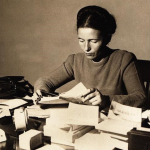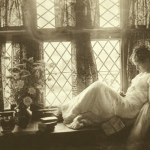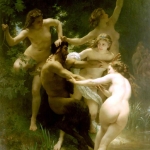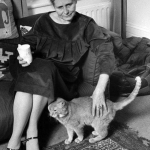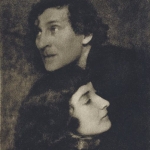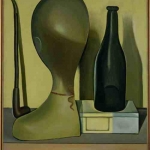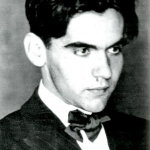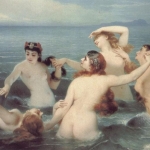CAMILLE CLAUDEL, A FEMALE GENIUS ~ BY MONIQUE LUCY WEBERINK

A Female Genius…
“You’re wrong to think it’s about you. You’re a sculptor, Rodin, not a sculpture. You ought to know. I am that old woman with nothing on her bones. And the aging young girl… that’s also me. And the man is me too. Not you. I gave him my toughness. He gave me his emptiness in return. There you are… three times me. The Holy Trinity, trinity of emptiness.”
Among the female artists I admire is Camille Claudel a French sculptor and graphic artist who lived from 1864 till 1943. I truly admire her strong determination for being accepted as an artist, which was definitely not easy in her time at the end of the 19th century. Her life is a story about having to go through a live long struggle in both her private and in her professional life.
Since she was a child Camile was fascinated with earthly materials, in particular stone and soil. With the support of her father she was able to attend the Academie Colarossi where she eventually met Alfred Boucher who was already a established sculptor. He become her mentor for several years and also introduced her to August Rodin that later on took over the role as being her mentor and it became the beginning of their passionate and tumultuous relationship. She started to work in Rodin’s workshop and after some time Claudel became a great source of inspiration for Rodin, she was his model, confidante and lover. After an unhappy relationship that continued for over 15 years, Claudel finally left Rodin. Her private life was left to bits and pieces her professional success then started to take off. But it would be a mistake to assume that Claudel’s reputation had been established and then survived the years simply because of her ‘notorious’ association with Rodin. To illustrate her reputation: the novelist and art critic Octave Mirbeau described her as “A revolt against nature: a woman genius”. Her early work is similar to Rodin’s in spirit, but shows an imagination and lyricism quite her own, particularly in the famous Bronze Waltz (1893).
In the period after 1905 Claudel appeared to be mentally ill. She not only disappeared for long periods of time but also destroyed many of her statues. She exhibited signs of paranoia and eventually was diagnosed as having schizophrenia. Her condition deteriorated up to a point where she started accusing Rodin of stealing ‘her’ ideas and of even leading a conspiracy to kill her.
Apart from her father her family did not support her decision to become a sculptor at all. But her father kept supporting her financially but after he died in 1913 her brother had Camille admitted to a psychiatric institution right away. The word went out she had volunteered to be committed. But it was her brother who had signed the admission forms. The hospital records that have been preserved clearly show that even though she did have many mental outbursts, she was very clear headed while working on her art. It was the will of her brother, and her mother as well, that she was not released from the institution.
It is really sad to see that a brilliant artist like Claudel literally got locked away simply because she did not conform to the norms of society of that time. Where there male artists were admired, the artistic behavior of Claudel was considered as strange and even schizophrenic. It is my opinion that her insanity might have been largely due to the social constraints and pressure forced on her up to a point that even her own family and Rodin who she so dearly loved and abandoned her had viciously betrayed her. She felt rejected and suffered a lonely and sad life. We are fortunate that a large part of her artworks have survived leaving us with her beautiful and inspirational legacy.
Monique Lucy Weberink

